Iranian Minister Hails Raisi For His Part In The Death Commission
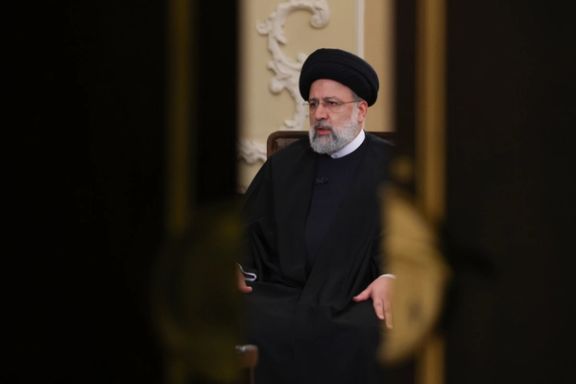
Iran's Minister of Culture has praised President Raisi’s character as a trusted leader of the Islamic Republic, saying he has been “tested across various critical junctures.”

Iran's Minister of Culture has praised President Raisi’s character as a trusted leader of the Islamic Republic, saying he has been “tested across various critical junctures.”
Mohammad-Mehdi Esmaeili, speaking in support of the president, also highlighted that during his youth, Raisi was entrusted with numerous judicial missions by the late Ruhollah Khomeini, the founding leader of the Islamic Republic.
President Raisi is facing domestic and international scrutiny due to his alleged involvement in orchestrating mass prison executions in 1988. Many of these executions targeted individuals associated with opposition groups such as the Mujahedin-e Khalq Organization (MEK), as well as leftist, secular, and Kurdish organizations.
Raisi was a member of an ad hoc judicial committee colloquially known as the "Death Commission." This committee was responsible for deciding the fates of prisoners during summary trials that were held in secret. While Raisi has denied direct involvement in issuing sentences, he has defended the actions against the MEK, citing their history of “violence” as justification.
Notably, some prisoners had been previously released from incarceration, only to be rearrested and retried during the execution spree, which was also referred to as a prison purge. The intention behind these retrials was to ensure prisoners fully denounced the MEK and demonstrated repentance.
The precise number of prisoners executed during the 1988 purges remains uncertain. However, according to Amnesty International, the Iranian authorities "forcibly disappeared" and "extrajudicially executed" an estimated 5,000 individuals between July and September 1988.
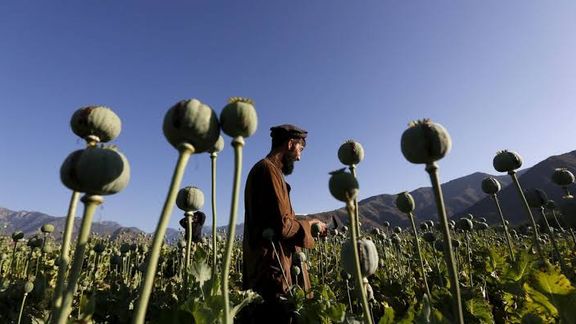
A group of Iranian MPs has praised the "remarkable progress" of the Taliban in their fight against drugs and "ensuring security in Afghanistan."
On Monday, a group of parliament members met with Mohammad Abdul Kabir, the Deputy Prime Minister of the Taliban and released a statement, "With the emergence of the Islamic Emirate government, the fight against the production and distribution of drugs in Afghanistan has been pursued, which also has an impact on Iran."
However, evidence suggests that poppy production and the cultivation of narcotics is on the rise. Eskandar Momeni, the Secretary-General of the Anti-Narcotics Headquarters of Iran said earlier this spring that despite the promises made by the Taliban and based on the official statistics of the United Nations, drug cultivation and production in Afghanistan had increased in the past year.
He said that Afghanistan currently holds the "first rank in opium production" and the "second rank in industrial drug production, including methamphetamine" in the world. The United Nations Office on Drugs and Crime states that Afghanistan produced 80% of the world's opium in 2022.
Therefore, despite Iran’s praise and the claims by Taliban officials to be working towards limiting and eventually eliminating drug cultivation and distribution, the statistics do not support their rhetoric.
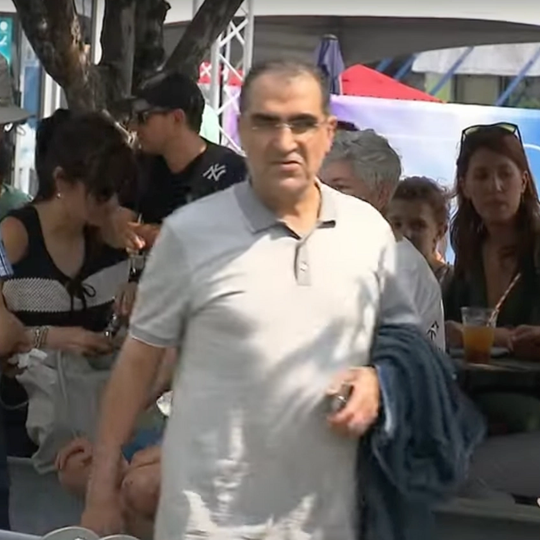
Reuters - Canada will deny temporary residency to Iran's former health minister Hassan Ghazizadeh Hashemi, Canadian Immigration Minister Marc Miller said on Monday.
He cited Tehran's human rights record, after Hashemi was reportedly seen in Montreal.
"Based on an assessment of the relevant facts recently brought to my attention, I have exercised my authority under s. 22.1 of the IRPA to prevent Mr. Seyed Hassan Ghazizadeh Hashemi from becoming a temporary resident of Canada for the maximum period of 36 months," Miller said in a post on X, formerly Twitter.
Section 22 of the Immigration and Refugee Protection Act gives the Canadian immigration minister the authority to deny temporary residency to a foreign national for up to three years.
"The decision itself, as communicated to the individual, is tied to Iran's disregard for human rights," Miller added, without disclosing Hashemi's location, whether he had sought residency, or how the information was conveyed.
Hashemi served as the minister of health for the Iranian government from 2013 to 2019 under former President Hassan Rouhani. He was widely seen as the key official behind a 2014 launch of a plan for universal medical insurance.
Iran International, a US-based news outlet focused on the Iranian diaspora, reported earlier in August that Hashemi was spotted in Montreal. It cited screenshots from a promotional video for the Quebec province's tourism industry. Reuters could not independently verify the presence of Hashemi in Montreal.
Canada cut diplomatic ties with Iran in 2012 and listed the country as a supporter of extremism. It also recently imposed sanctions on Iran over alleged human rights abuses and the killing of Mahsa Amini, a woman who died in the custody of Iran's morality police that enforced strict dress codes.
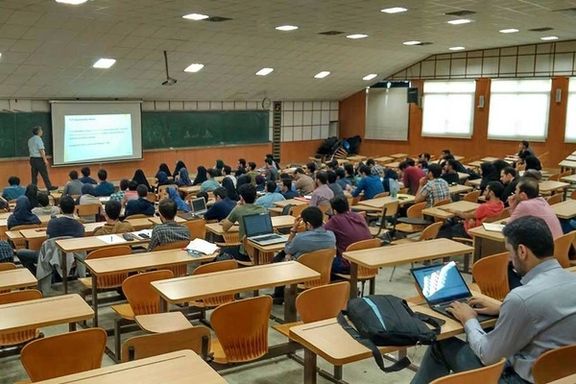
Purging dissident professors in Iran, which commenced shortly after the protests of the Woman, Life, Freedom movement last September, has intensified in recent days.
News of the ongoing purge angered the public after Professor Ali Sharifi-Zarchi announced on X on August 26 that Sharif University of Technology had expelled him.
Sharifi-Zarchi, a member of the bioinformatics and AI Faculty of the university's computer engineering department, supported dissident students during the months-long nationwide protests sparked by Mahsa Amini's death in custody on September 16 last year.
In the past few days, the university has also invited three hardliner figures, including Amir-Hossein Sabeti, a television presenter, to teach Islamic subjects at the university.
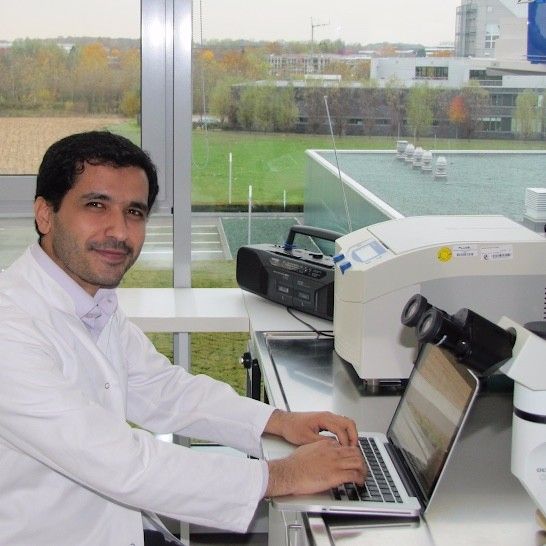
Observers say the dismissal of dissident professors may be a preemptive move to reduce the chances of campus protests on the first anniversary of Amini's death.
Iran’s former nuclear chief Ali-Akbar Salehi, who is also the deputy head of the Academy of Sciences of the Islamic Republic of Iran, spoke to the reformist Jamaran news website about Sharifi-Zarchi's expulsion on Monday. He said the academic level of universities will deteriorate due to the "mass injection" of unqualified academicians replacing the expelled professors. "It can no longer be called a university!" he exclaimed.
Salehi added that he had tried to contact the university's chancellor and had sent messages to him, stating that decisions of such sensitivity should be made with tolerance and careful consideration, even if Sharifi-Zarchi had not fully abided by some of the university's rules and regulations, as they claim.
In the past couple of days, at least ten university professors from Sharif, Allameh Tabatabai, and Tehran universities were either sacked or suspended. In April, nine professors from Tehran Azad University, who had openly criticized the regime and its policies, were similarly purged through forced early retirement.
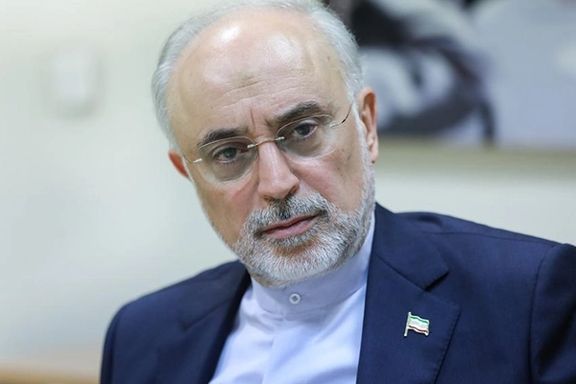
According to the reformist Etemad newspaper, from 2006 to the end of August 2023, 157 tenured professors have been dismissed, forced into retirement, or banned from teaching due to their critical and dissenting views, as part of a broader initiative to cleanse universities of critics of the hardline establishment.
During the presidency of Mahmoud Ahmadinejad (2005-2013), who was closely aligned with hardliners, the regime also attempted to employ professors who were ideologically aligned with the hardline and religious establishment.
The intensification of the purge appears to have caused delays in the start of the academic term in some universities, with several institutions potentially resorting to online lectures.
Ameneh Aali, a psychology professor at Allameh Tabatabai University, who is among those sacked, told the Didban-e Iran news website on Saturday that she was informed of her expulsion over the phone and was not provided a reason for the termination of her contract with the university.
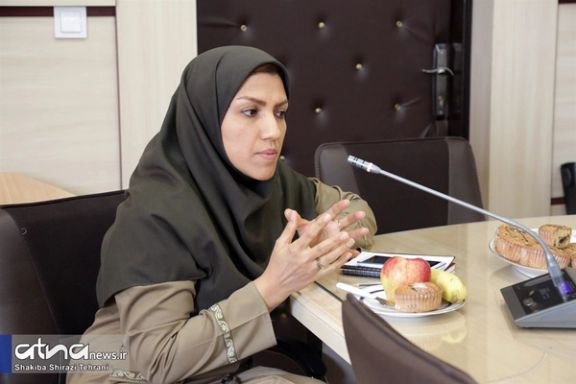
She asserted that she was dismissed because she had signed statements supporting protesting students last year, participated in their sit-ins, and objected to the suspension of students.
While the Ministry of Higher Education has not commented on the issue, the Interior Ministry released a statement on Monday describing criticism of the expulsion of academics as "media propaganda" and asserting that the Higher Education Ministry had taken "revolutionary action."
The Interior Ministry's statement also accused the sacked professors, who had opposed the crackdown on students and supported those who were arrested or suspended, of "political immorality and media show-off," and of "defiling" the academic arena with their "factional and even anti-national views."
In a statement on Sunday, the National Union of Iranian University Professors criticized the "profuse meddling" of security bodies in academic affairs and warned about the "gradual decline" of universities.
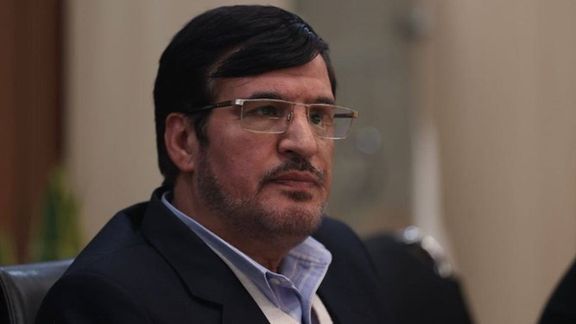
Two rights groups in France have lodged a legal complaint against Iran's Paralympic committee chief, accusing him of torture and crimes against humanity.
Ghafour Kargari, who currently serves as the president of Iran's national Paralympic committee, is presently in France attending a gathering with representatives from other nations participating in the 2024 Summer Paralympics games, according to statements from event organizers.
The two human rights groups assert that Kargari was a former commander of the Quds Force, a division of Iran's Islamic Revolutionary Guards Corps (IRGC) responsible for clandestine military operations and intelligence efforts throughout the Middle East.
Emmanuel Daoud, an attorney representing the French collective Femme Azadi and the Swedish NGO House of Liberty who filed the complaint, stated that France should not have issued him a visa for the meeting.
"The IRGC and the Quds group have been at the forefront of the violent repression of peaceful movements for democracy, civil rights and equality of men and women in Iran," they said in a document filed with France's anti-terror prosecutors and seen by AFP.
Given Kargari's high-ranking position in Iran's military hierarchy, the organizations assert that he was involved in formulating and executing strategies for these groups, leading them to argue that his actions "could also be qualified as crimes against humanity."
The 2024 Summer Paralympics are scheduled to be held from August 28 to September 8, featuring the participation of over 4,000 athletes.
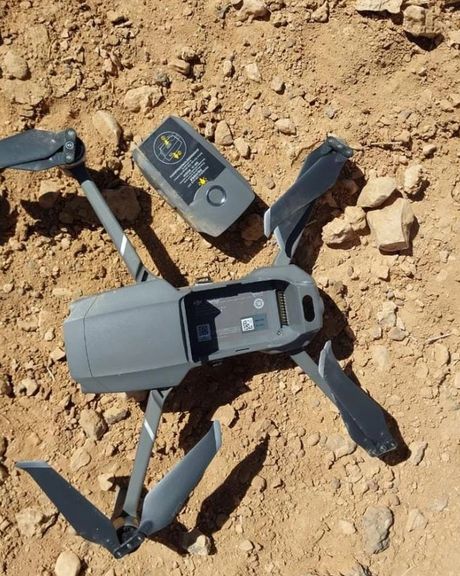
The Jordanian army said it downed a drone heading from Syria on Monday in the third such incident this month, linked to Iran-backed militias.
Meanwhile, officials said an increase in weapons being smuggled across the border was raising concerns about a new Iranian-instigated threat beyond drugs.
The army said in a statement that the drone was brought down in its territory but did not say what it was carrying. Officials have recently revealed weapons were being smuggled as well as narcotics by drone.
Jordanian officials said the increasing use of drones carrying explosives was adding a new dimension in a relentless cross-border billion-dollar drug war the staunch US ally has long blamed on Iranian-backed militias that hold sway in southern Syria.
"This is Iranian targeting of Jordan helped by the presence of their militias near our border. It poses a security threat that goes beyond drugs," Samih Al Maitah, a former minister familiar with developments along the border said.
Syria is accused by Arab governments and the West of producing the highly addictive and lucrative amphetamine captagon and organizing its smuggling into the Persian Gulf, with Jordan a main transit route.
Syrian President Bashar al-Assad's government denies allegations by Jordan and the West of its involvement in drug-making and smuggling, or complicity by Iranian-backed militias protected by its forces.
Jordan, which has intensified military drills along its border with Syria, announced 10 days ago it had foiled a large smuggling operation.
During a visit by the top US general last week, Jordan raised getting more US support for its efforts to curb drug trafficking by Iranian militias, Jordanian officials say.
General Mark Milley, the chairman of the US Joint Chiefs of Staff, confirmed in an interview that Washington was working closely with its ally to provide equipment, training and advice to deal with the growing drug trafficking threat.






